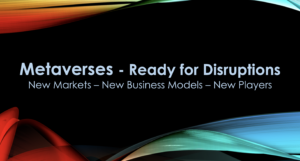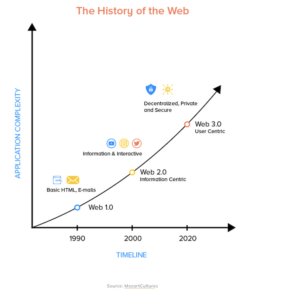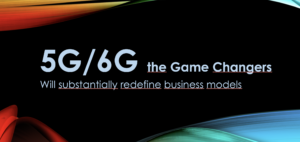- Web 3.0 vs. the metaverse, what’s the difference? Both have been called the internet of the future, but they aren’t the same thing.
- Shaping future education with digital technology helps educators and other stakeholders make innovations for the new generations of learners in the coming years.
- Storytelling 3.0: People-centered organizations need people-centered processes. It is about creating a state of mind that starts with a change of heart.
- When can we invest in new business opportunities, companies, and startups?
- Web3 is expected to offer many possibilities to disrupt established markets.
- Facsimile4.0 – the metaverse will take many forms, including gaming, online communities, and business meetings where people collaborate via a digital facsimile or avatar of themselves.
Metaverse(s), potential new megatrends?
How close are metaverses?
Among others, Meta Platform around Mark Zuckerberg is investing to build another promising future. Other companies such as Nvidia, Intel, Qualcomm, Microsoft, Sony, Adidas, Nike, Hyundai, Lego, Kawasaki, Siemens, and others are investing many billions in these new web3/ metaverse options of the future.
What can I personally expect from web3/ metaverse – when can I invest in new business opportunities, companies, and startups?
What is the metaverse?
The prototypes were described in 1992 in the novel Snow Crash. Later, several companies developed online communities based on this concept, most notably Second Life, which was released in 2003.
How do the internet and metaverse differ?
The internet is a network of billions of computers, millions of servers, and a multitude of electronic and networked devices. Once online, internet users can communicate with each other, view and interact with websites, and buy and sell goods and services.
The metaverse does not compete with the internet but builds on it.
In the metaverse, users traverse a virtual world that mimics aspects of the physical world using technologies such as virtual reality (VR), augmented reality (AR), artificial intelligence, social media, and digital currencies. The internet is something that people “browse“ and to a certain extent, people can also “live“ in the metaverse.
What is relevant for me in this environment?
What relevance does the whole topic have for me at all in the future?
Which opportunities I should seize, or even with which period I must invest in which way?
Fig. 1
Behind this question is one thing above all, the approach to the metaverse in the new internet period. Currently, most of us only know about the first games, maybe a few concerts or other events, and advertising in the digital worlds that have made headlines in the recent past. These may already be concrete, but they are probably only initial starting points.
How will Storytelling 3.0 develop? What impact will this have on Munich Media Speakers, a rhetoric storytelling 2.0 platform that we founded at the Strascheg Center for Entrepreneurship in Munich in 2010?
Gartner does not comment specifically on these possibilities.
(Fig.2)
The key question is:
When is the megatrend so relevant that there is no getting around it?
Or is there even such a point in time?
And if so, what are the possible triggers that would make it relevant? From work to leisure, a lot is possible, although there are alternatives. Digital work meetings, for example, can also be possible with simple video conferencing.
This raises another question about the Metaverse:
What is the advantage over the previous solutions that are established? And connected to that, are the advantages so great that the mass of people can be convinced to change their behavior in this direction? If you get to the bottom of these questions, you might find an approach.
Still very abstract?!
The metaverse is therefore still one thing for me very abstract today. Of course, that doesn’t have to be a bad thing. In the beginning, many consumers could not imagine ordering via the internet or even streaming TV content in series. Things that are completely normal today.
Nevertheless, one should not only think about the megatrend of the metaverse from an investor’s point of view but also ask oneself once – what do I see today and how do I find it and what changes are possible? Or rather, what can guide me into this market as a consumer?
Maybe you also conclude that this megatrend is not for you. Or perhaps you are convinced that it will take decades before these solutions become established or deliver added value. The abstractness and the limited access of many consumers can mean opportunities, but also risks.
5G and broadband as growth drivers for Metaverse and Web3 applications!
The most important drivers of this virtual scenery are the network operators, who make Metaverse possible in the first place with high-bandwidth, low-latency in 5G mobile and broadband networks. It is the wide coverage of superfast 5G connections that makes this inflection point for VR and „AR“ real, whether with smartphones or rather other types of devices, for a more complete Metaverse experience. And in the advancing tunnel of technology developments, we already recognize 6G radio capacities today, with many more spring innovations and possibilities.
From today’s perspective, I see the following meaningful business areas becoming concrete.
- Industry Metaverse
- Shaping the future of Education and Learning – Expanding teaching methods that have been established during Covid for universities and other educational institutes. Improving online teaching skills, as well as online teaching. Platforms that offer teachers and students new forms of interaction and learning experiences. Digital meeting places to further expand networking and the educational businesses with students, teachers, partners, and the stakeholders involved.
- Meta Lives – digitally enhanced lifestyles (health, wellness, sport, …)
- Metaverse Properties bills itself as the world’s first virtual real estate company. The company acts as an agent to facilitate the purchase or rental of property or land in several metaverse virtual worlds — including Decentraland, Sandbox, Somnium, and Upland. Offerings include conference and commercial spaces, art galleries, family homes, and „hangout spots.“
- Meta Spaces – events, travel, and real estate
- Meta Business – metaverse will also revolutionize retail sooner or later.
New Work: hybrid work or remote work has long been the norm in real life. The metaverse is pushing the boundaries even further by allowing people to connect their meetings from their home offices via their virtual avatars and collaborate in virtual offices. With Microsoft Mesh and Facebook Horizon Workrooms, there are already the first tools for the new Metaverse workforce available.
- Meta Societies – New communities are emerging, so-called DAOs (short for Decentralized Autonomous Organization), which are based on common values and implement projects together. DAOs – Decentralized Autonomous Organizations – Blockchain (DLT) as door opener / NFT as membership card/ Smart Contracts as a framework – DAO as corporation/ partnership, cooperative, trust solutions …).
- New Marketplaces – new companies in new markets
Bruno Müller
Digital Family Office
Mail: bm@brunomueller.com




